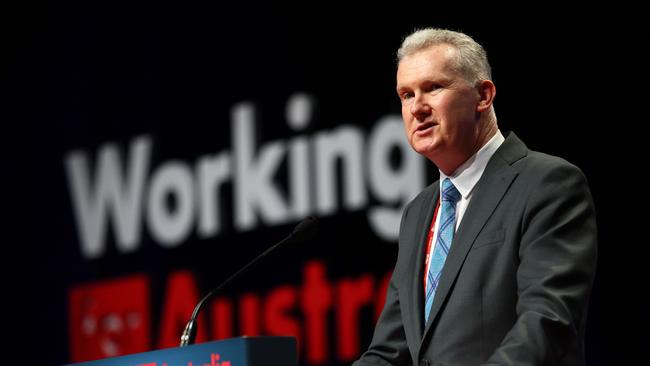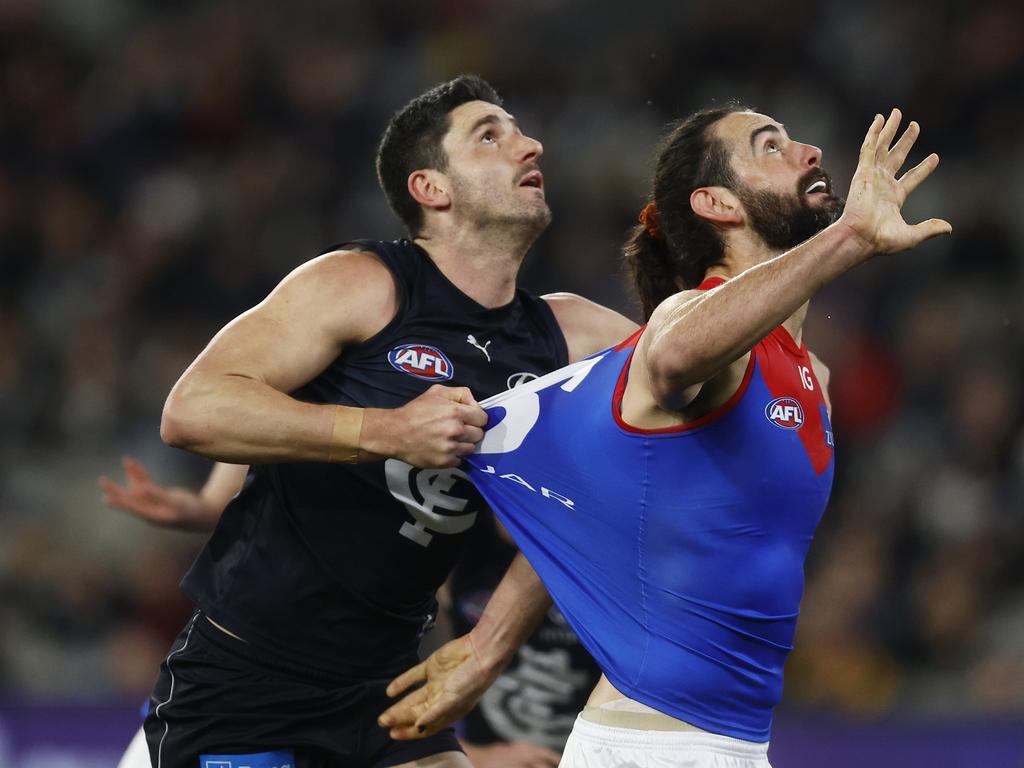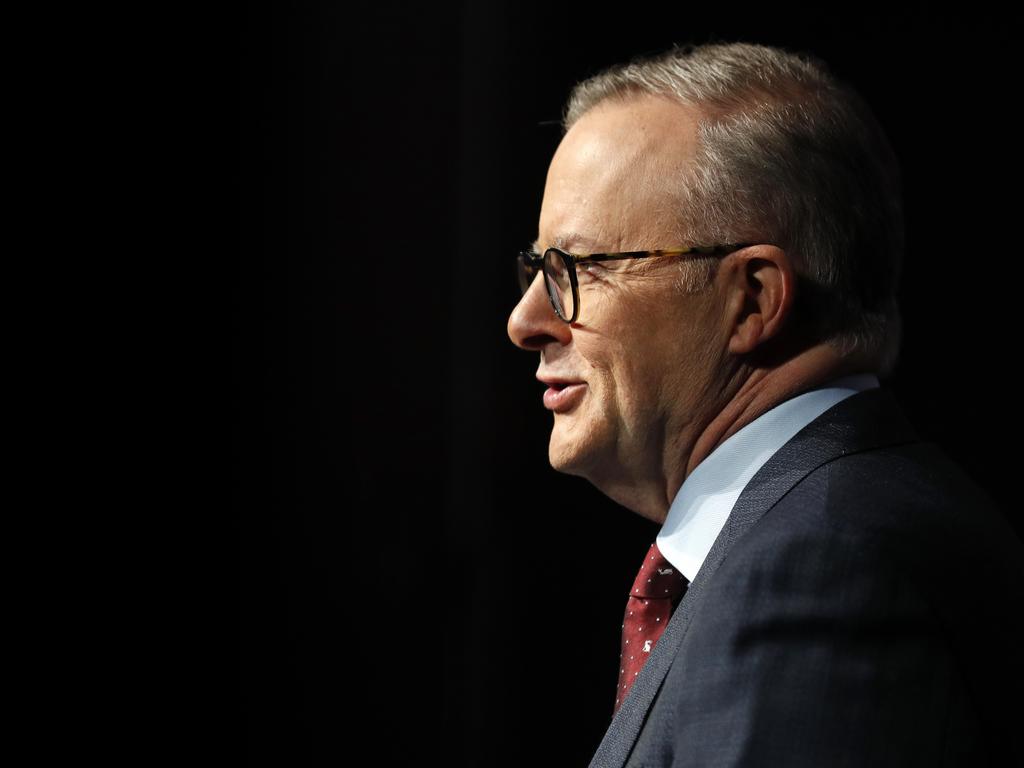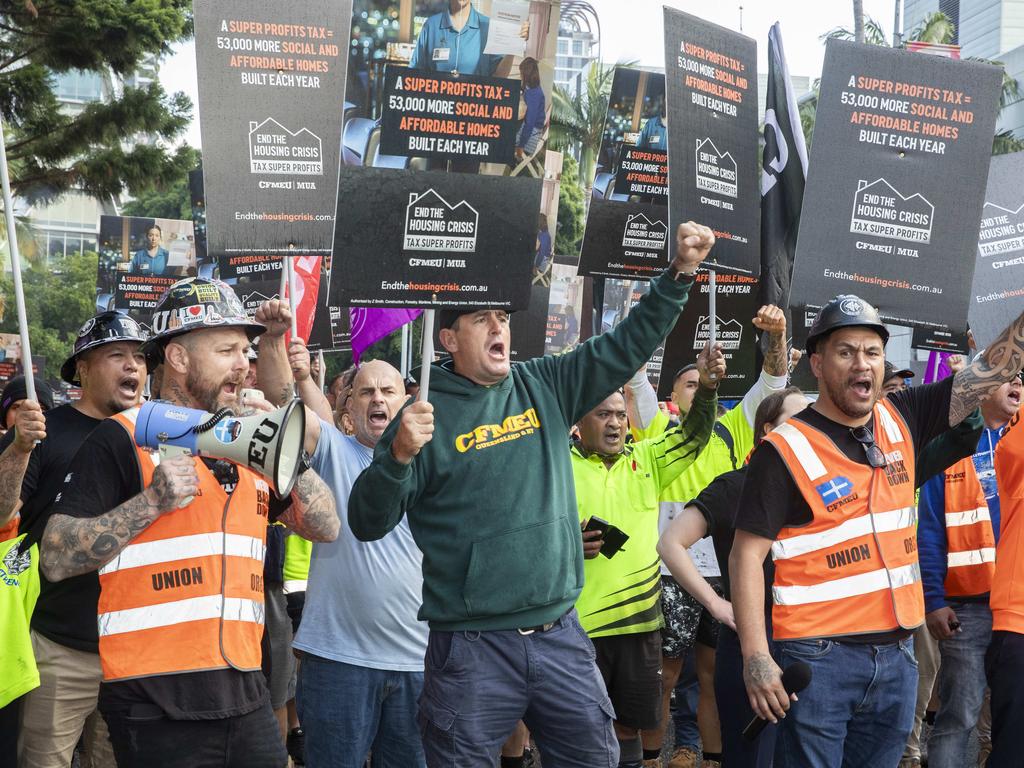Tony Burke takes on business industrial relations anger
Tony Burke will include a ‘full regulation impact statement’ assessing his sweeping IR reforms and stare down business leaders who say the legislation is ‘worse’ than feared.

Workplace Relations Minister Tony Burke will include a “full regulation impact statement” assessing the government’s sweeping industrial relations reforms in legislation put to the parliament, as he stares down a backlash from business leaders who say the proposed laws have “progressively worsened”.
Ahead of Mr Burke speaking at the National Press Club on Thursday, business, mining, farming and building groups will ramp-up their campaign against Labor’s second round of IR changes expected to be tabled when parliament returns next week.
Amid souring relations between Mr Burke and big business, who believe the union-backed legislation will smash productivity, investment and job creation, the legislation will be referred to a parliamentary inquiry before returning for a senate showdown by December.
A July 26 letter obtained by The Australian reveals that nine industry, farming, mining, gas and small business groups, whose members employ millions of Australians, wrote to Mr Burke pleading for him to not rush Labor’s workplace relations reforms through the parliament.
The letter said the government’s omnibus Bill overhauling rules around casuals, labour hire and employee-like definitions would “impact the entire economy and it is therefore not just a workplace relations issue”. Business leaders are pushing for a pause on the IR reforms to allow for “a thorough analysis of the potential implications”.
Responding to criticism that he didn’t reply to the letter, Mr Burke told The Australian his response has “been through continuous consultation”. He also revealed that in relation to calls for a thorough assessment of potential economic impacts, the government’s IR legislation “will be accompanied by a full regulation impact statement”.
Several business groups, whose representatives were forced to sign non-disclosure agreements before being granted access to draft exposure legislation earlier this month, told The Australian the government’s IR legislation “is worse than expected”, increases complexity around casuals and offers no genuine concessions.
Mr Burke on Sunday hit back, declaring that “I’m not surprised the comment is unattributed given it is demonstrably untrue”.
The timing of the legislation coincides with major companies reporting bumper profits, making it easier for the government to prosecute the case that the legislation will eradicate IR “loopholes” used by some employers.
With employers still reporting labour shortages, Prime Minister Anthony Albanese and Skills Minister Brendan O’Connor on Monday will reveal Labor’s fee-free TAFE push is running ahead of schedule, with all 180,000 places filled within six months.
Fee-free TAFE enrolments have hit more than 214,000, six months earlier than anticipated and almost 35,000 places above expectations. Courses across health, aged and disability care attracted more than 51,000 students, making up 23.8 per cent of total enrolments. Construction attracted almost 21,000 enrolments, technology and digital (16,768) and early childhood education and care (11,868).
Business leaders have been lobbying Mr Albanese and Treasurer Jim Chalmers on the second round of IR reforms, warning of damaging economic consequences if they become law.
The Coalition is expected to use senate estimates hearings in October to grill Department of Employment and Workplace Relations and Treasury officials over whether modelling was done to test the impact of the IR overhaul on productivity, jobs and the economy.
Sources close to the consultation process told The Australian that the IR reforms were a “threat to productivity growth, investment and job creation”.
“The industrial relations legislation has progressively worsened, not improved. Even in the space of a few weeks, the government has hardened its position and taken bad policy and made it even more horrendous,” a prominent industry group said.
“Every key element of this legislation – from Same Job, Same Pay to casuals, and employee-like – has become more arduous, more complex and more of a threat to the wider economy and the productivity growth Australia desperately needs.”
The new IR reforms follow multi-employer bargaining changes that passed through the parliament in December last year.
Another industry group said the IR reforms had become more complex, particularly in relation to Labor’s union-influenced definition of casuals, which would make it harder for major employers and small business to operate.
“If this legislation passes it will create a lawyers picnic with legal challenges across the country. There will be significant impacts on both small business and the regions. Farmers and small business will get some exemptions, but it won’t help them.”
The industry groups’ letter to Mr Burke said: “We seek to ensure any changes to the workplace relations system preserve productive and harmonious workplaces that provide secure jobs with sustainable wage increases.”








To join the conversation, please log in. Don't have an account? Register
Join the conversation, you are commenting as Logout